Meet the Fellows
2025-26 GAAP Cohort 2
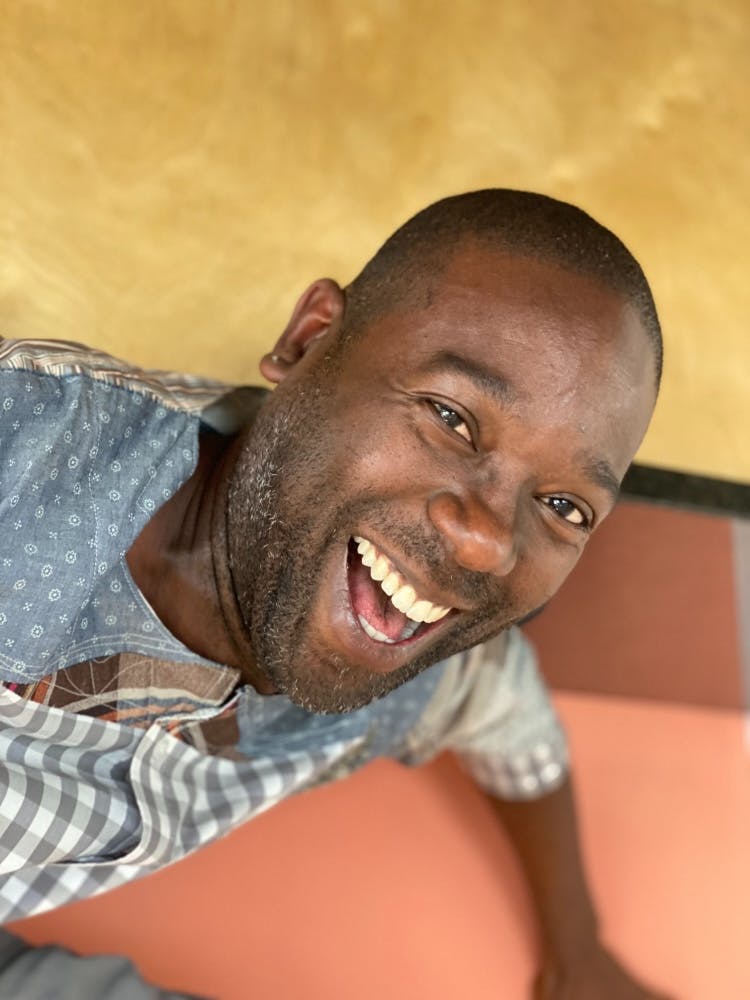
Eric Avery
Eric Avery (they/he) is Black, queer, working-class interdisciplinary artist and cultural organizer based in West Oakland with over nineteen years of experience in theatre, interactive performance, and community-based projects. Avery was born and raised on the Eastside of Topeka, Kansas, a place shaped by redlining, disinvestment, and environmental harm. They earned a Bachelor's degree in Theatre & Film from the University of Kansas and an MFA in Theatre Arts from Towson University.
WebsiteSince 2018 Avery has focused on creating projects using a reparations framework, which explores how to center healing and historical repair in our decision making processes. Avery has focused on relationship-centered processes, leading to collaborations with nonprofits, municipalities, social service agencies, universities, farms, community centers, prisons, art galleries, and private homes.
They have independently created over 25 original productions and led organizing projects concerning: food sovereignty, environmental justice, reparations, clean energy, and forming cooperatives. Their work has received recognition from the Bessie Awards (Outstanding Visual Design), Elliot Norton Awards (Outstanding Design), and Lavender Magazine (Outstanding Performance), and support from the MAP Fund, Zellerbach Community Arts, East Bay Fund for Artists, TBA CA$H Grant, Dresher Ensemble Artist Residency, and Kenneth Rainin Foundation: NEW
What led you to apply for GAAP?
As an artist focused on reparations and collective healing, I’m constantly striving to position my creative practice to allow for impacts in the real world. The Grassroots Artist Advocacy Program caught my attention in 2024 when I initially applied to the program, and I’m so grateful to be in the second cohort of the program. GAAP is uniquely powerful in its support of Bay Area artists to develop advocacy skills, cultivate intentional community connections, and build strategic pathways towards the world we aim to manifest. This opportunity comes at a time when I’m ready to take my creativity, organizing, and career to their next levels of accomplishment and GAAP is situated to help me lay a sustainable foundation towards these goals.
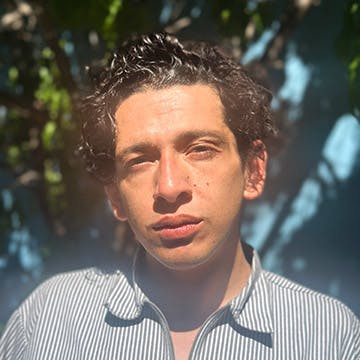
Guillermo “Yiyo” Ornelas
Guillermo “Yiyo” Ornelas is a Bay Area–based performer, teaching artist, grant writer, and advocate for arts education and cultural equity. A queer, first-generation Mexican-American, Yiyo has dedicated their career to empowering youth, families, and artists through creative expression and structural support.
They have worked with Mission Cultural Center for Latino Arts, San Francisco Youth Theatre, and the Teatro Project, served as Vice-Chair of the Arts Education Alliance of the Bay Area, and now sit on the board of Aviva Arts.
As a grant writer, Yiyo has helped secure funding from the San Francisco Arts Commission, Center for Cultural Innovation, and Parks Alliance, including a $50,000 Arts Equity Grant for Tradición Peruana Cultural Center. They also received SFAC support for Fantasmitas: Cinco Sueños Regresando al Sur, which premiered nationally in 2024. Alongside advocacy, Yiyo performs with Magic Theatre (The Travelers, Dirty White Teslas Make Me Sad), Los Angeles Theatre Company, Brava Theatre, and dances with Afro-Peruvian ensemble Jaranón y Bochinche.
They hold a B.A. in Sociology and Theatre & Performance Studies from UC Berkeley, where they earned the Mark Goodson Award for Distinguished Artistic Talent.
What led you to apply for GAAP?
I decided to apply for the GAAP Fellowship because its mission aligns deeply with my longstanding commitment to fostering cultural equity and inclusive arts spaces. I’ve always been dedicated to ensuring that marginalized voices are not only heard but centered. This fellowship represents an opportunity to deepen that work, to grow alongside a network of like-minded peers, and to bring valuable resources and knowledge back to the communities I serve. In short, I applied because I believe in the power of this fellowship to amplify the impact of the work I’m passionate about.
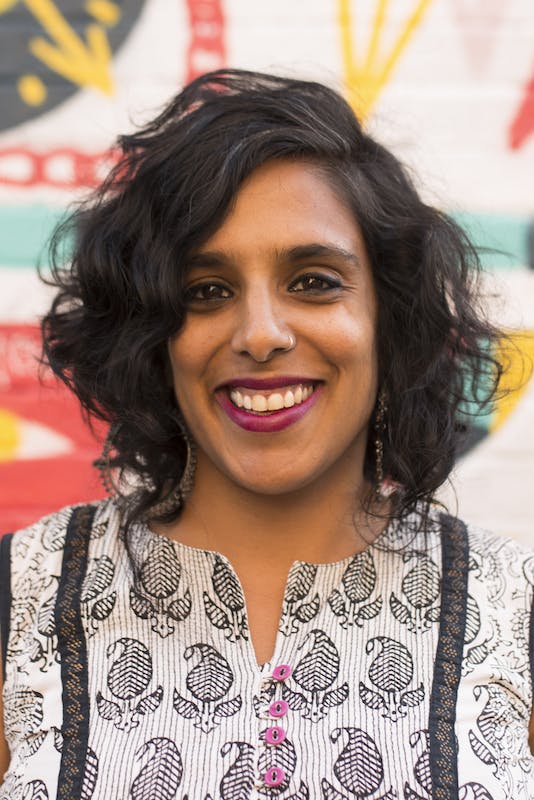
Joti Singh
Joti Singh is a Punjabi-American choreographer, cultural organizer, and educator whose work lives at the intersections of tradition, resistance, and community. She is the Co-Artistic Director of Duniya Dance and Drum Company, which she co-leads with her partner, Guinean musician Bongo Sidibe.
WebsiteJoti’s choreography draws from Bhangra, Punjabi folk traditions and West African dance from Guinea, using these forms as vessels of memory, protest, and belonging. Her work uplifts South Asian radical histories and builds solidarity across diasporas, particularly between South Asian and Black communities. Joti’sJoti’s choreography draws from Bhangra, Punjabi folk traditions and West African dance from Guinea, using these forms as vessels of memory, protest, and belonging. Her work uplifts South Asian radical histories and builds solidarity across diasporas, particularly between South Asian and Black communities. Joti’s choreography includes “Half and Halves,” about Punjabi-Mexican farmworker histories in California, and “Ghadar Geet: Blood and Ink,” inspired by her great-grandfather Bhagwan Singh Gyanee’s leadership in the Bay Area-based Ghadar Party, an anti-colonial movement that fought for India’s independence. Joti’s work has been supported by the Creative Work Fund, California Arts Council, San Francisco Arts Commission, and the Alliance for California Traditional Arts, and she is the 2024 recipient of the Gerbode Special Award in Dance and the 2025 New England Foundation for the Arts (NEFA) National Dance Project grant. She founded the World Dance Program at Ruth Asawa San Francisco School of the Arts and continues to teach widely. A mother of two, Joti’s practice is rooted in cultural advocacy, storytelling, and creating spaces of joy, resistance, and liberation. choreography includes “Half and Halves,” about Punjabi-Mexican farmworker histories in California, and “Ghadar Geet: Blood and Ink,” inspired by her great-grandfather Bhagwan Singh Gyanee’s leadership in the Bay Area-based Ghadar Party, an anti-colonial movement that fought for India’s independence.
Joti’s work has been supported by the Creative Work Fund, California Arts Council, San Francisco Arts Commission, and the Alliance for California Traditional Arts, and she is the 2024 recipient of the Gerbode Special Award in Dance and the 2025 New England Foundation for the Arts (NEFA) National Dance Project grant. She founded the World Dance Program at Ruth Asawa San Francisco School of the Arts and continues to teach widely. A mother of two, Joti’s practice is rooted in cultural advocacy, storytelling, and creating spaces of joy, resistance, and liberation.
What led you to apply for GAAP?
I applied to GAAP to turn the deep storytelling that grounds my artistic work into strategic action that creates lasting change for the communities I serve. I’ve spent years honoring ancestral memory, community resistance, and cultural resilience through performance and education. I’m ready to more fully step into my role as an advocate who not only creates art that moves people emotionally, but also mobilizes structures, funding, and policy to support artists of color, immigrants, and caregivers. I’m excited by the opportunity to sharpen my advocacy tools: learning how to analyze and influence policy, build coalitions, speak to funders and decision-makers, and transform collective stories into systemic change. I want to develop skills in designing campaigns, framing messaging, and building infrastructure that helps artists thrive. These are areas I’ve often had to navigate on my own; gaining structured, mentorship-driven experience through this fellowship will be transformative.
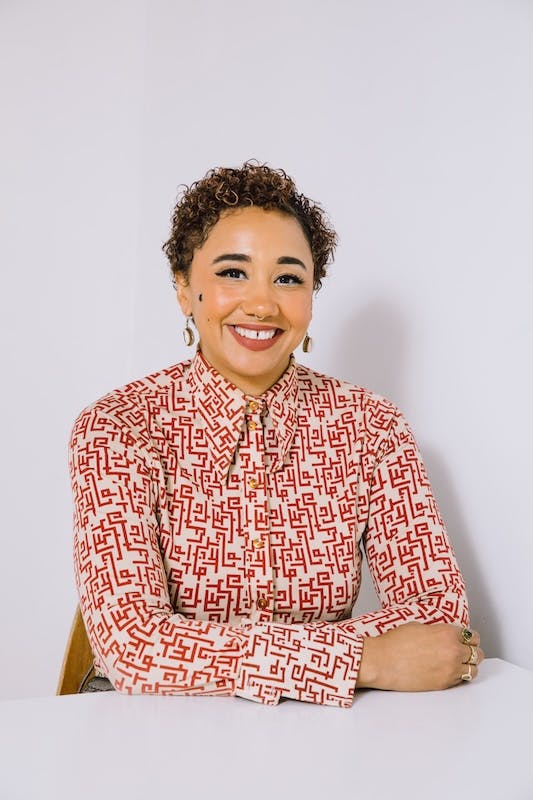
Maddy Clifford
Maddy Clifford is a writer, musician, and arts leader with deep roots in Oakland. For over a decade, she worked as a teaching artist across the West Coast. This allowed her to share her curriculum on college campuses, in community centers, and even inside youth detention facilities. She believes in the power of creative writing, performance, and other artistic disciplines to boost emotional intelligence and literacy rates—two essentials for building an equitable society.
WebsiteMaddy previously served as Cultural Strategist in Government for the City of Oakland and was part of Intersection for the Arts’ THRIVE cohort of BIPOC arts leaders. As an arts-worker, she’s done everything from composing the score for Flyaway Productions’ aerial dance piece Apparatus of Repair, to producing a hip-hop album about climate change (downCHANTS), to helping launch a Black feminist podcast called What’s Pimpin’?
Maddy’s writing has appeared in KQED Arts, Hammer & Hope, and Teen Vogue. She’s been featured on Last Week Tonight and collaborated with More Perfect Union. Lately, Maddy has been delving into new media and narrative strategy—amplifying points of interconnectedness between the work of artists and social justice organizers.
What led you to apply for GAAP?
I applied to GAAP because our country is facing serious social challenges, many of which stem from systemic lack of access to community care, literacy, and opportunities to develop emotional intelligence. I believe the arts play a vital role in creating a more just society, one that resists authoritarianism and embraces shared humanity. Through GAAP, I hope to connect with other arts leaders, gain new skills, and develop a plan to advocate for increased awareness and investment in the arts and artists, especially during times of crisis when they’re needed most.
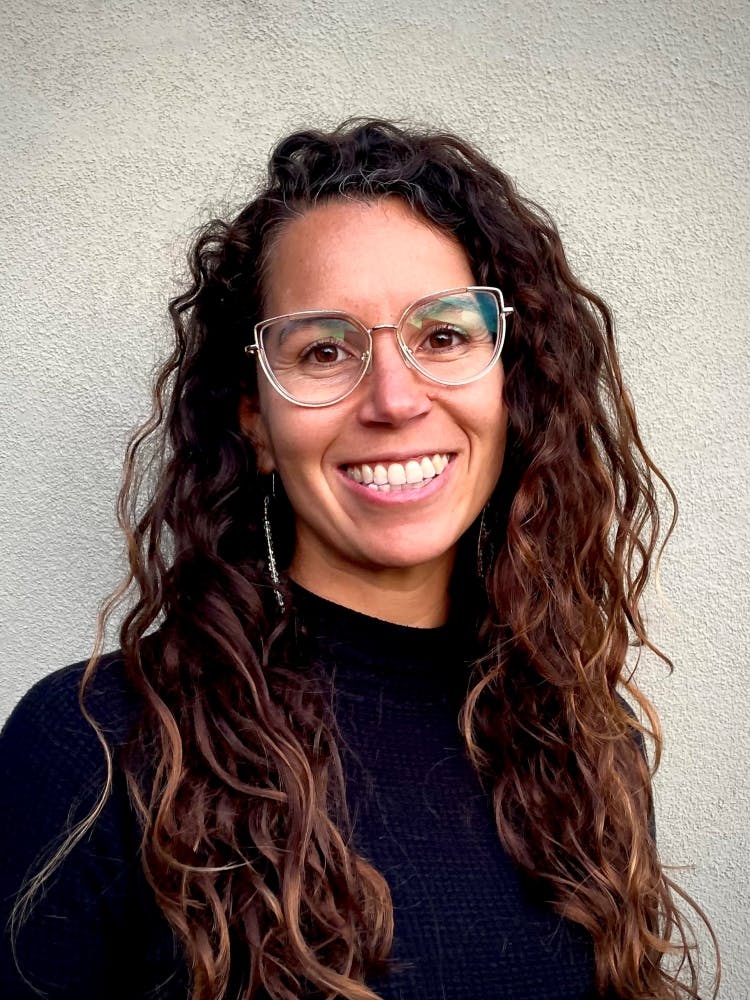
Ronice (Ro) Stratton
Ronice (Ro) Stratton (she/they) is the Executive Director of Oakland Art Murmur, where they advance public access to the East Bay’s visual arts by leading initiatives that amplify local artists, expand equity programs for emerging artists, and produce citywide events such as East Bay Open Studios and Oakland Style Week.
WebsiteRonice is also a dance artist and cultural organizer. With Dancing Earth, Ronice performs and teaches at the intersection of dance, ecology, and cultural resilience, and with Diana Lara Projects, they collaborate in international residencies and performances exploring Honduran ancestry and Indigenous resistance. Ronice is a co-founder of RECLAIM, a dance gathering for BIPOC and/or Queer communities. RECLAIM creates intentional spaces where dance, rest, and solidarity become tools for liberation and collective care. Through these roles, Ronice is dedicated to cultivating inclusive spaces where creativity drives belonging, justice, and collective transformation.
What led you to apply for GAAP?
I believe artists are essential to the cultural and civic life of the Bay Area, yet too often lack the tools and resources to influence the systems that shape our futures. My work as a dance performer, cultural organizer, and arts leader has shown me both the power of creative communities and the barriers we face in advocacy—opaque processes, limited access, and underinvestment. GAAP offers the knowledge, relationships, and strategy I need to bridge those gaps: to strengthen collective advocacy, translate advocacy plans into artist-friendly language, and build sustainable pathways for cultural workers to thrive.
What is GAAP?
The Grassroots Artists Advocacy Program (GAAP) is a cohort-based fellowship program for artist advocates that live or work in Oakland or San Francisco. Artist Advocates include diverse artists, culture bearers, and creative workers with a dedicated and committed artistic or cultural practice who directly engage in advocacy and policy development to advance the holistic well-being of the field. GAAP is a program funded by the Kenneth Rainin Foundation